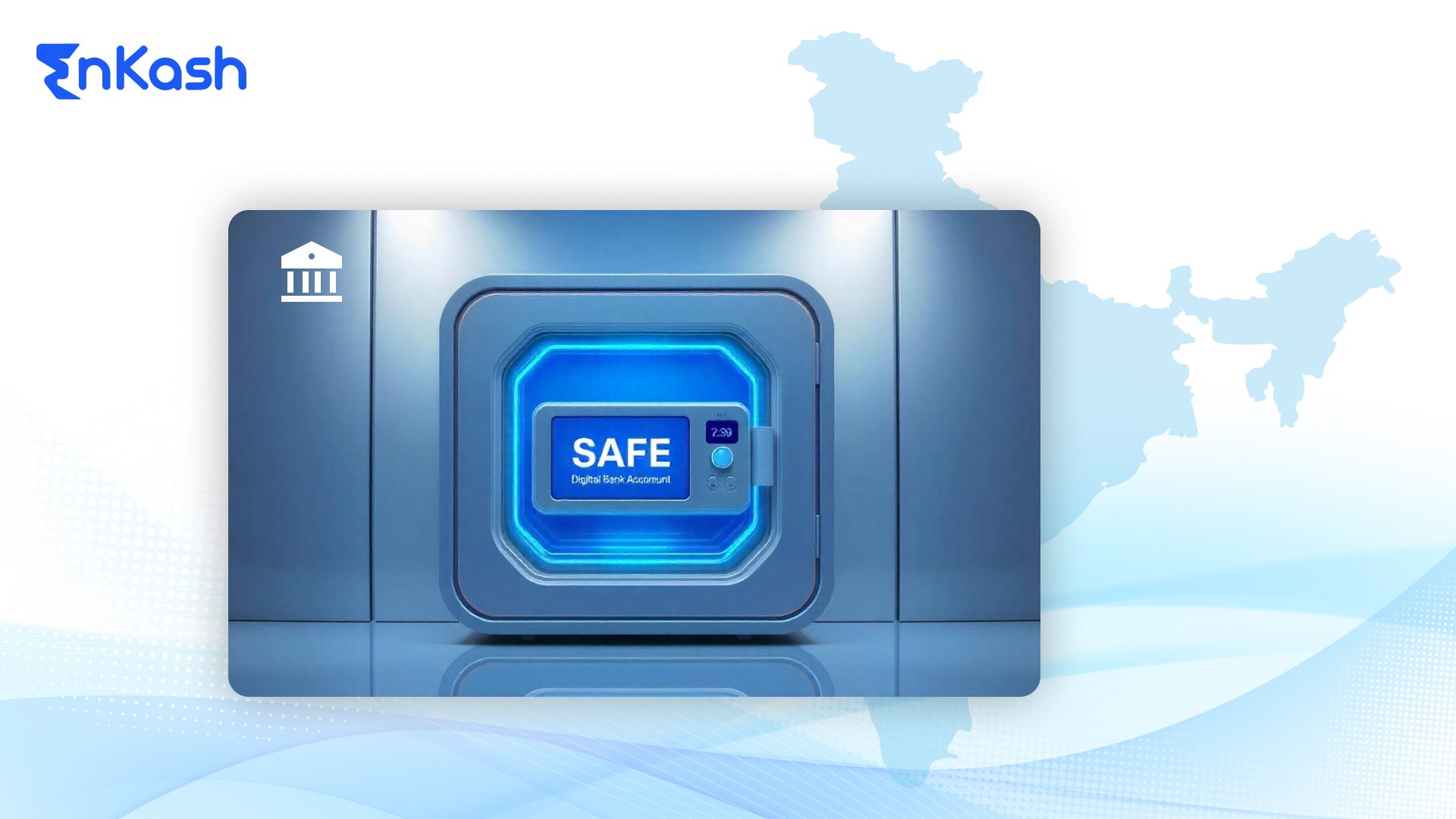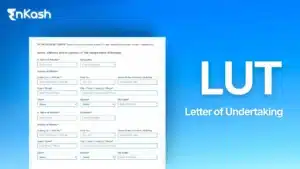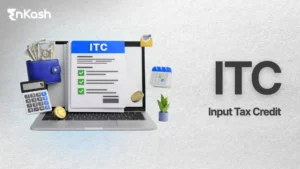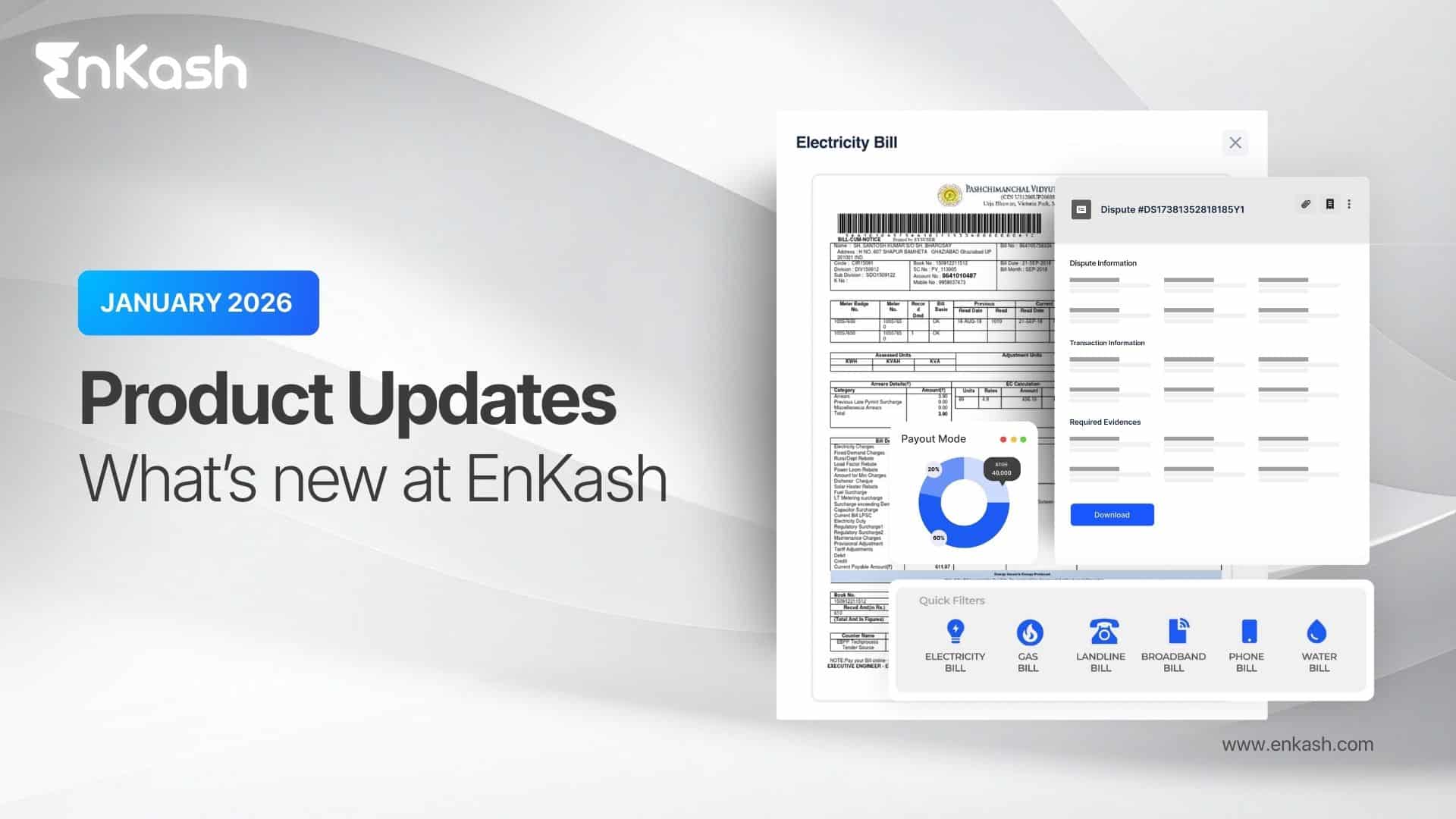Escrow accounts keep transactions secure by holding money with a neutral third party until terms are met, facilitating trust and transparency. Most common in real estate, online trade, and international transactions, they avert losses and protect users. With digital technology and India’s economic development, escrow accounts are now a must-have for safe and smooth money transactions.
What is an Escrow Account?
An escrow account is a secure, third-party account used to hold money, property documents, or assets until all parties in a transaction fulfill their agreed-upon conditions.
- Simple Meaning: Think of it as a safety locker managed by a neutral party, ensuring funds are released only when everything is verified.
- Purpose: It adds trust, transparency, and security in high-value transactions like real estate, online business deals, or international trade.
Read more: Accounts receivable process
How does an Escrow Account Work?
Escrow accounts work with a three-part system: the buyer, the seller, and the escrow agent. Here’s an in-depth explanation of how they work:
- Agreement on Terms: The buyer and seller define the transaction’s terms, including milestones, deadlines, and conditions for fund release.
- Account Setup: An escrow account is created with a bank or a digital escrow service provider.
- Funds Deposit: The buyer deposits the agreed amount into the escrow account, where the funds are held securely.
- Milestone Verification: The escrow agent verifies that the conditions or milestones have been met.
- Funds Release: Upon verification, the funds are released to the seller or the intended party.
When conducting international business, escrow accounts assist in reducing the risks associated with international trade, keeping both buyers and sellers on the same page while navigating different legal and regulatory frameworks.
Escrow Payments and Disbursements
What is an Escrow Payment?
An escrow payment is money deposited into a third-party account (escrow account) during a transaction to ensure security for both the buyer and seller. It acts as a temporary holding place for funds until all agreed conditions are met.
Key points:
- Ensures safe transfer of money without directly handing it to the seller.
- Protects both parties in real estate, online purchases, and business deals.
Example: When buying a house, the buyer deposits the payment into an escrow account. The funds are released to the seller only after the property title is verified and the sale conditions are fulfilled.
Escrow Disbursement Explained
Escrow disbursement refers to the release of funds from an escrow account to the intended recipient once all conditions of the agreement are satisfied. It ensures transparent and secure fund transfer.
Key points:
- Can be for payments, refunds, or settlement of accounts.
- Managed by an escrow agent or bank to avoid fraud.
Example: After a mortgage is approved, the escrow account disburses funds to cover property taxes, insurance, and other related fees.
Escrow for Mortgages and Taxes
In India, lenders may collect or facilitate certain charges, but US-style PITI escrow is uncommon. Borrowers generally pay municipal taxes and insurance directly unless the lender has a specific arrangement.
Key points:
- Escrow tax disbursement: Funds are automatically used to pay property taxes.
- Escrow on mortgage: Helps manage monthly mortgage payments, including principal, interest, taxes, and insurance (PITI).
- Can reduce missed payments where such arrangements exist; in India, borrowers often pay taxes/insurance directly.
Example: Each month, a portion of your mortgage payment goes into an escrow account. This account is then used to pay property taxes and homeowners’ insurance automatically.
Types of Escrow Accounts in India
Escrow accounts are used across a range of industries. Before diving into individual account types, it’s crucial to note the adaptability of these accounts for a wide range of financial requirements.
Real Estate Escrow Accounts
Common in real estate. Funds are released to developers upon verified construction milestones, improving accountability for homebuyers. Under RERA, developers must deposit at least 70% of the amounts collected into a designated project bank account with restricted withdrawals. While often called ‘RERA escrow,’ it’s a statutory mechanism distinct from contract-based escrow.
E-commerce and Marketplace Escrows
Secure transactions over the Internet by holding payments until buyers verify the purchase of products or services. It eliminates fraud and disputes in the ever-expanding Indian e-commerce industry.
Investment and Business Mergers
Enable safe fund transfers in M&A while complying with contractual and regulatory requirements. These accounts are used to manage risks, store money until all the agreed terms are fulfilled, and keep both sides from being exposed to losses.
Litigation Escrows
Hold funds in the event of litigation and have money held by a neutral third party until the case is settled. These types of accounts are often used in a high-stakes dispute to secure the financial interests of both parties.
Cross-Border Trade Escrows
Hold funds for overseas transactions until goods are shipped and meet agreed conditions, such as inspection reports and customs clearance (subject to FEMA). It is particularly helpful for exporters and importers addressing new or unfamiliar trading partners.
Key Points of Different Types of Escrow Accounts:
Type of Escrow Account |
Purpose / Usage |
Who Uses It |
|---|---|---|
Real Estate Escrow Account |
Holds buyer’s deposit and funds until the property sale is finalized. Ensures both parties meet conditions before money is released. |
Home buyers, sellers, real estate agents |
Mortgage Escrow Account |
Collects and pays property taxes, homeowner’s insurance, and other recurring costs on behalf of the borrower. |
Mortgage lenders, homeowners |
Online Transaction Escrow |
Protects both parties in online sales by holding funds until goods or services are delivered and verified. |
E-commerce buyers and sellers, freelancers |
Business Escrow Account |
Holds funds during mergers, acquisitions, or business deals until all contractual obligations are met. |
Businesses, investors, legal teams |
Stock / Share Escrow |
Holds shares (not options) until conditions such as IPO lock-ins or M&A milestones are met. |
Startups, employees, investors |
Import-Export Escrow |
Ensures payment is made after goods are shipped and meet agreed standards in international trade. |
Importers, exporters, trade intermediaries |
Legal Settlement Escrow |
Holds settlement funds until legal case obligations are completed, then disburses to the winning party. |
Lawyers, plaintiffs, defendants |
Read More: Cost accounting types
Legal and Regulatory Aspects of Escrow
Escrow accounts are more than just financial tools — they are regulated instruments designed to protect all parties involved in a transaction. Here’s what you need to know:
1. Legal Escrow Accounts and Services
A legal escrow account is a third-party account that securely holds funds until contractual obligations are met.
- Why It Matters: Lawyers often use these accounts to safeguard client money during property purchases, litigation settlements, or business deals.
- Regulations: Escrow accounts must comply with local banking regulations, escrow laws, and attorney escrow account rules, ensuring transparency and audit readiness.
- Compliance Tip (2025): Businesses must follow current KYC/AML norms issued by RBI/SEBI applicable to your use-case; verify the latest circulars before onboarding..
2. Who Holds the Escrow Funds?
Escrow funds are typically managed by a neutral escrow holder or escrow agent, which can be:
- Escrow Banks: Authorized banks that offer dedicated escrow account services.
- Independent Escrow Agents: Licensed professionals who hold funds until transaction milestones are met.
- Attorneys & Law Firms: In limited cases, law firms hold client monies, but most transactions use bank-operated or regulated intermediary escrows for clearer safeguards..
Pro Insight: Always verify that your escrow holder is authorized and insured — this reduces the risk of fund mismanagement.
3. Escrow Agreements and Contracts
An escrow agreement is a legally binding document that specifies:
- The purpose of the escrow account (e.g., property purchase, M&A deal, online transaction)
- The conditions for releasing funds
- The roles and responsibilities of all parties (buyer, seller, escrow agent)
Why It’s Crucial: A well-drafted escrow account contract protects against disputes, outlines dispute resolution mechanisms, and provides legal recourse in case of breach.
Escrow Fees, Costs & Management in 2025
Understanding how escrow fees work and how to manage an escrow account is crucial for buyers, sellers, and businesses. Here’s an in-depth, up-to-date guide.
1. Escrow Fees & Costs – What You’re Really Paying For
Escrow fees are the service charges you pay to an escrow company, bank, or agent for safeguarding funds and managing the transaction.
Aspect |
Details (2025 Update) |
|---|---|
Escrow Fee Meaning |
A one-time or recurring fee for holding funds securely until contract terms are met. |
Typical Cost Range |
Residential real estate: 0.25% – 1.0% of the transaction value. Business/large deals: flat fee or negotiated percentage. |
Who Pays? |
Often split between buyer and seller in property deals. Businesses usually pay as per contract terms. |
Hidden Costs |
Bank processing charges, legal drafting fees, and compliance verification fees (KYC/AML checks). |
Tax Note |
Escrow service charges may attract GST as applicable. |
Pro Tip: In 2025, many digital escrow platforms are offering low-cost, automated escrow solutions — reducing human intervention and lowering fees.
2. Escrow Account Management & Servicing
Escrow account management involves tracking balances, disbursing funds, and ensuring compliance with legal and contractual terms.
Service |
Purpose |
|---|---|
Escrow Account Management |
Oversee inflows, outflows, and ensure correct payment schedules. |
Escrow Servicing |
Post-deal monitoring, recurring payments (taxes, insurance), and fund reconciliation. |
Digital Escrow Management |
AI-driven dashboards with real-time tracking and automated reminders for milestones. |
Benefit: Proper escrow management avoids disputes, improves transparency, and ensures timely fund release.
Pros & Cons of Using Escrow (2025 Perspective)
Pros (Why Escrow is Good) |
Cons (When Escrow May Not Suit You) |
|---|---|
Protects buyer & seller by holding funds securely. |
Adds extra cost to the transaction. |
Reduces risk of fraud in online and cross-border transactions. |
Can delay closing if documentation or compliance checks are slow. |
Offers legal protection through a formal contract. |
Some smaller transactions may not justify the fee. |
Builds trust in high-value or first-time transactions. |
Not all escrow providers are equally regulated — risk of poor service. |
Conclusion: Escrow is a safety net for high-value, complex, or trust-sensitive transactions — but weigh the cost against the level of protection you need.
How to Open an Escrow Account?
In India, here is how to create an escrow account:
- Choose a Provider: Choose a bank or digital escrow platform, depending on the purpose of the transaction.
- Establish Terms and Conditions: Clarify the agreement, milestones, deadlines, and release points.
- Submit Documentation: Provide documents like identity proof, address proof, and transaction information.
- Deposit Funds: Deposit the agreed amount into the escrow account.
- Monitor Milestones: Observe progress to make sure all parameters are met.
- Release Funds: Upon verification of milestones, the escrow agent releases the funds.
Digital platforms can streamline it further and make it accessible even to small businesses and individuals. This methodical setup provides transparency, reduces conflicts, and increases trust.
Escrow as a Service (EaaS)
Online Escrow as a Service (EaaS) is revolutionizing payments in India. These platforms provide:
- Ease of Use: Easy configuration with minimal documentation.
- Cost-Effectiveness: Affordable solutions over traditional escrow services.
- Accessibility: Available for individual users, small businesses, and large enterprises.
EaaS is especially good for Indian startups and SMEs as it allows them to conduct secure payments without paying high prices. With new technologies like AI and blockchain, these platforms are also increasingly efficient and transparent.
EaaS also enables the two sides of a transaction to track developments continuously in real-time, which builds trust and eliminates the likelihood of disputes. This is especially true in fields like e-commerce and freelancing, where trust plays an important role in maintaining long-term relationships.
Read more: What is Financial Accounting?
Legal and Regulatory Framework for Escrow Accounts in India
Escrow accounts in India are regulated by the RBI to ensure legitimacy. Key considerations include:
- KYC Compliance: Follow the Know Your Customer best practices strictly.
- Tax Implications: Escrow funds can be subject to tax on interest earned.
- Dispute Resolution: Legal recourse for resolving conflicts between two or more parties.
These guidelines create a robust system of secure and legal transactions and ensure that escrow accounts function within the legal boundaries prescribed by Indian financial authorities.
How to Maximize the Effectiveness of Escrow Accounts
Taking advantage of escrow accounts can only be done effectively through proper planning, stable partnerships, and technological implementation. These are some key practices that can improve the utility and stability of escrow services:
1. Define Clear Terms
The key to preventing disputes and misrepresentations is to have clear and specific terms and conditions in the escrow contract. Make sure that roles, responsibilities, and fund-release terms are clear and mutually understood by all parties. This clarity lowers the chance of disagreement and makes the process of transactions easy.
2. Select Trusted Providers
It’s crucial to work with a good, trusted, and seasoned escrow agent or platform to ensure a smooth and safe transaction. Trusted providers offer high-quality systems, comply with the regulations, and offer customer service to manage any problems that arise during the escrow process.
3. Monitor Progress
Monitor milestones and terms periodically as laid out in the escrow contract. Regular reports and communication with the escrow agent keep all parties in the loop, and the transaction goes as smoothly as possible. It also allows you to identify delays or problems in advance.
4. Leverage Technology
Using high-tech digital tools can help boost the efficiency of escrow accounts. These platforms include real-time tracking, automated notifications, and secure document sharing. Additionally, blockchain-based escrow solutions provide secure transaction logs and smart contract fund transfers that reduce human involvement and errors.
5. Engage in Regular Reviews
In long-term or multi-step transactions, it is important to revisit the escrow agreement and milestones on a regular basis to accommodate changes in circumstances or unexpected issues. This proactive strategy helps to ensure that the escrow contract is consistent and useful throughout the transaction lifecycle.
Read More: Managerial accounting
Conclusion
Escrow accounts play a vital role in enabling safe, transparent, and reliable financial exchanges in different sectors in India. As a means to secure funds until certain conditions are met, escrow accounts help minimize the risk of fraud, develop trust, and make financial transactions easy. As organizations and individuals alike continue to work in a highly competitive, digitalized world, escrow solutions can greatly help improve business productivity and protect interests.
In addition, with better digital infrastructure and a regulatory framework, escrow accounts can become an even more prominent component of India’s financial ecosystem. From the real estate market and eCommerce to cross-border trading and corporate mergers, the use cases for escrow accounts are enormous and growing. For anyone involved in high-risk or milestone-based transactions, knowing and utilizing escrow accounts is not only beneficial but critical to a secure and transparent financial relationship.
Read More: Difference between cost and financial accounting
FAQs
1. What does it mean to be “in escrow”?
Being “in escrow” means a neutral third party (escrow company or bank) is holding funds or property documents until all the conditions of a transaction are met.
Example: When buying a house, your payment is kept in escrow until the seller completes all legal formalities.
2. How do escrow disbursements work?
An escrow disbursement is when funds from the escrow account are released to the right party based on the agreement.
Example: After closing a real estate deal, the escrow agent disburses funds to the seller, government (for taxes), and lender (for fees).
Why it matters: It ensures timely, transparent, and fraud-free transactions.
3. Can you have an escrow account without a mortgage?
Yes. You can open an escrow account without a mortgage for:
- Rental security deposits
- Business transactions
- Freelance or international payments
- Vehicle or equipment purchases
This allows funds to be held safely until both parties fulfill their obligations.
4. What happens to escrow after closing?
After closing, your escrow is either:
- Closed (One-Time Transaction): Funds are fully disbursed, and the account is settled.
- Converted to Ongoing Escrow: If you have a mortgage, the lender continues to collect monthly escrow payments for property taxes, insurance, and HOA fees.
5. What are the industries in India that use escrow accounts the most?
Escrow accounts are extensively used in real estate, e-commerce, mergers and acquisitions, cross-border business, and litigation. They are most popular in real estate to lock down buyers’ money until a certain level of construction is complete and in e-commerce to guard against online exchanges between purchasers and sellers. Because of their versatility, they are crucial in any industry that needs financial stability.
6. Can escrow accounts in India handle multi-currency transactions?
Yes, there are various banks and online escrow providers in India that provide multi-currency escrow accounts. These are especially useful for cross-border payments where two parties use different currencies. It’s possible to keep the funds in the target currency until the terms are met, making international trading easy and minimizing the risks of currency conversion.
7. Can escrow accounts be used for subscription-based services?
Yes, escrow accounts are ideal for subscription-based products where payments wait for certain service milestones to be met. Businesses, for example, can fund escrow accounts to store money for long-term contracts so that payment is only made after the agreed-upon deliverables are fulfilled, granting both service providers and subscribers peace of mind.
8. How does an escrow account differ from a payment gateway?
Both provide transaction security, but escrow accounts are more sophisticated. Escrow holds funds till both sides of a transaction agree on the transaction terms. A payment gateway, however, sends funds directly without holding funds or establishing conditions, so escrow is best used for large-value or conditional transactions.
9. Are digital escrow services safe in India?
Yes, Digital Escrow Services in India are secure as long as you choose providers that partner with RBI-regulated banks and follow KYC/AML norms; ensure funds are held in a designated bank escrow account.. These platforms use encryption, secure payment rails, and strong data-privacy controls to safeguard funds and information. Select trusted companies for maximum protection.
10. Can escrow accounts be customized for specific transactions?
Absolutely. Escrow accounts can be adapted to the specific needs of certain types of transactions, like milestone payments, deferred fund releases or multi-party contracts. This configuration ensures all parties are covered and the transaction runs smoothly.
11. What happens to the funds in an escrow account if one party defaults?
If one party defaults, money in the escrow account is kept in place and never transferred until the dispute is settled. The escrow company can arbitrate, or you can appeal the matter to arbitration or court and have the funds sent to the correct party. This functionality protects against loss caused by the violation.
12. How does an escrow account support startups in India?
Escrow accounts offer startups a secure way to raise funds, handle vendor payments, and implement subscriptions. Escrow allows investors to withdraw funds only upon certain milestones, enabling accountability and trust. In addition, startups can securely trade with customers and vendors by using escrow services.
13. What are the tax implications of using escrow accounts in India?
Taxation on escrow accounts in India also means that you have to pay taxes on any interest accrued while money is stored in the account. The beneficiary has to pay taxes when the funds are released. Make sure you consult a tax professional to know what taxes come with an escrow transaction in India.










